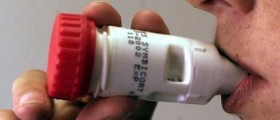
Information about Cetirizine
Cetirizine is a medication that can be used for the prevention and treatment of symptoms of medical conditions such as hay fever, itchy eyes, itchy nose, sneezing, stuffy nose, watery eyes, itchy throat, and other symptoms of allergies that affect the upper respiratory tract. It can also be used for the prevention and treatment of chronic types of hives.
Cetirizine is actually an antihistamine and its main purpose is to block the action of histamine in the human body and reduce the symptoms of the particular allergic reaction. Persons who are allergic to hydroxyzine or any ingredient contained in cetirizine should avoid using this medication. Pregnant and breastfeeding female patients should also avoid using cetirizine. Those who already take herbal preparations, dietary supplements, herbal supplements, prescription or nonprescription medications should not be using cetirizine.
People who are allergic to certain types of foods and medications should also be warned before using cetirizine. The same can be said for people who receive dialysis and for those who have any problems with the health of their liver or kidneys. Cetirizine may also interact with some other medications in a negative manner. Those who take theophylline must not take cetirizine because it may lead to an increase of occurrence and severity of certain types of side effects.
Cetirizine dosage should be determined by a doctor or it can be read from the medicine label. The medication should always be taken by mouth, and a missed dose should be skipped. It is not recommended to take two doses at once. This medication may cause drowsiness, especially if it gets mixed with alcohol or certain other medications. It is recommended not to drive or operate any machinery while taking the drugs because it may be unsafe as it may cause impaired reactions and reflexes.
Those who take certizine should be very careful because it causes the person to become sunburned much more easily than usual. Older persons and infants should take special care since they can be much more sensitive to certain effects of the medicament. Breastfeeding and pregnant women should not use cetirizine as it may harm the infant.
Side Effects
Cetirizine may cause headaches, somnolence and fatigue in some cases, but those occurrences are usually dose related. Some rare cases have included nervousness, aggression reaction, dizziness, convulsions and insomnia as well.
It may also cause vomiting, dry mouth, dyspepsia, nausea and pharyngitis. Other side effects of cetirizine have include liver function abnormalities, recurrent acute hepatitis, coughing, wheezing, asthma, sinusitis, bronchitis, urticarial eruptions, maculopapular eruptions, anaphylactic reactions, accidental injuries and epistaxis.

















Your thoughts on this
Loading...